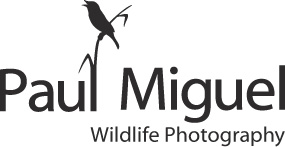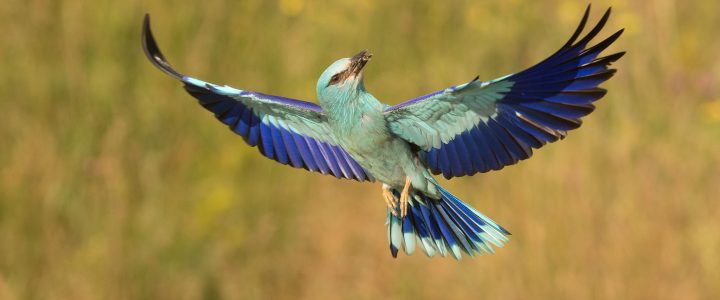Due to the pandemic, the last time I used these hides in Serbia was in 2019 so I was eager to get back. It was a wonderful feeling to be back here again and I can honestly say the hides were as good as ever – in fact, this year I’d say they delivered some of the best opportunities I’ve ever seen. I met my 3 clients, Mike, Karen and Ray at Belgrade Airport before taking our transfer north to Vojvodina.
The next morning we had our first photo session – a beautiful setting for Hoopoe. Both parents were bringing food back to the chicks – my clients worked largely on capturing flight shots whilst I concentrated on video. We also got images of the youngsters peeking out of the nest hole! This hide is one-way glass, situated at ground level, with a wild flower meadow as the backdrop. It also doubles up as a White Tailed Eagle hide in the winter months.
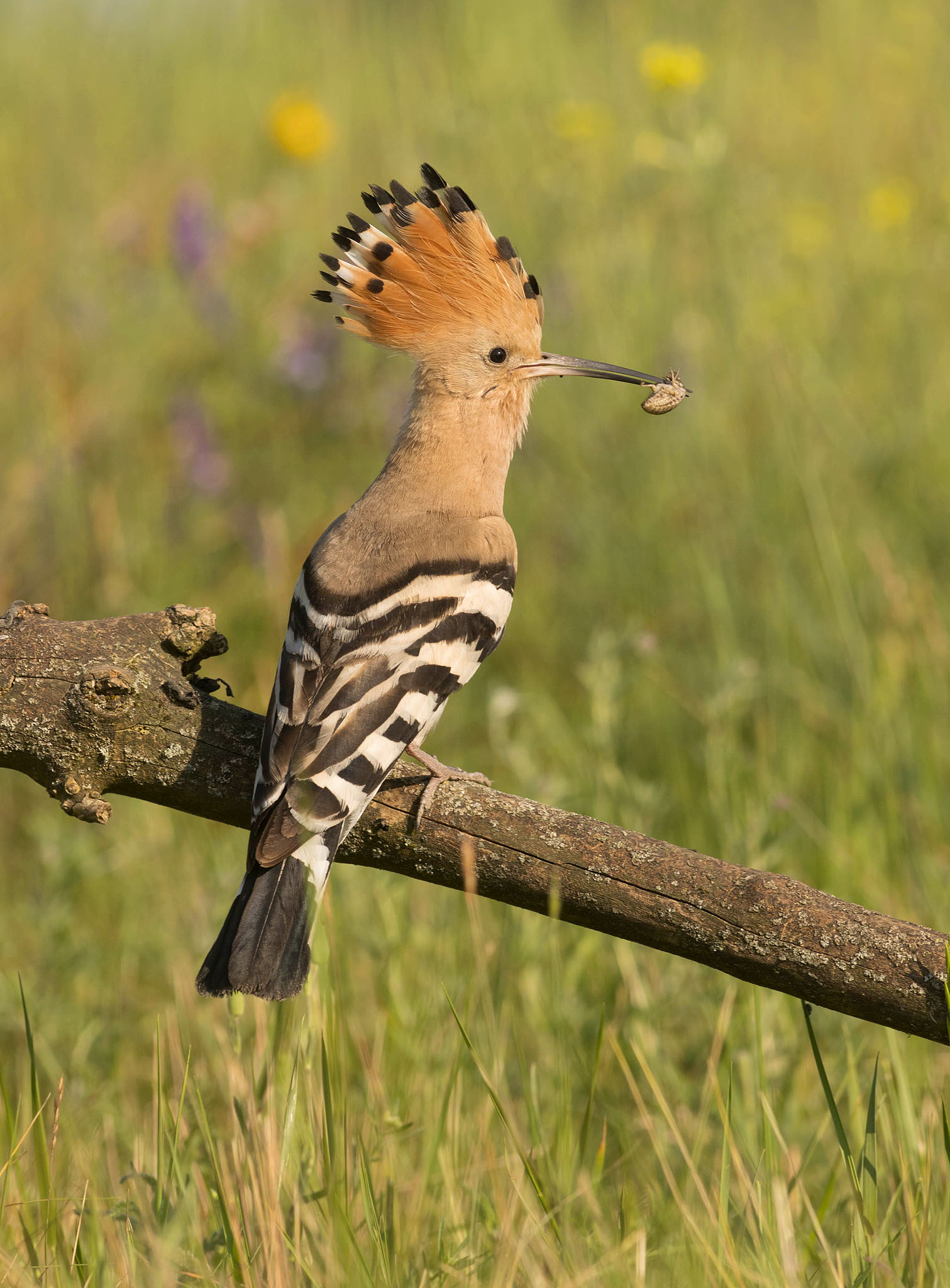
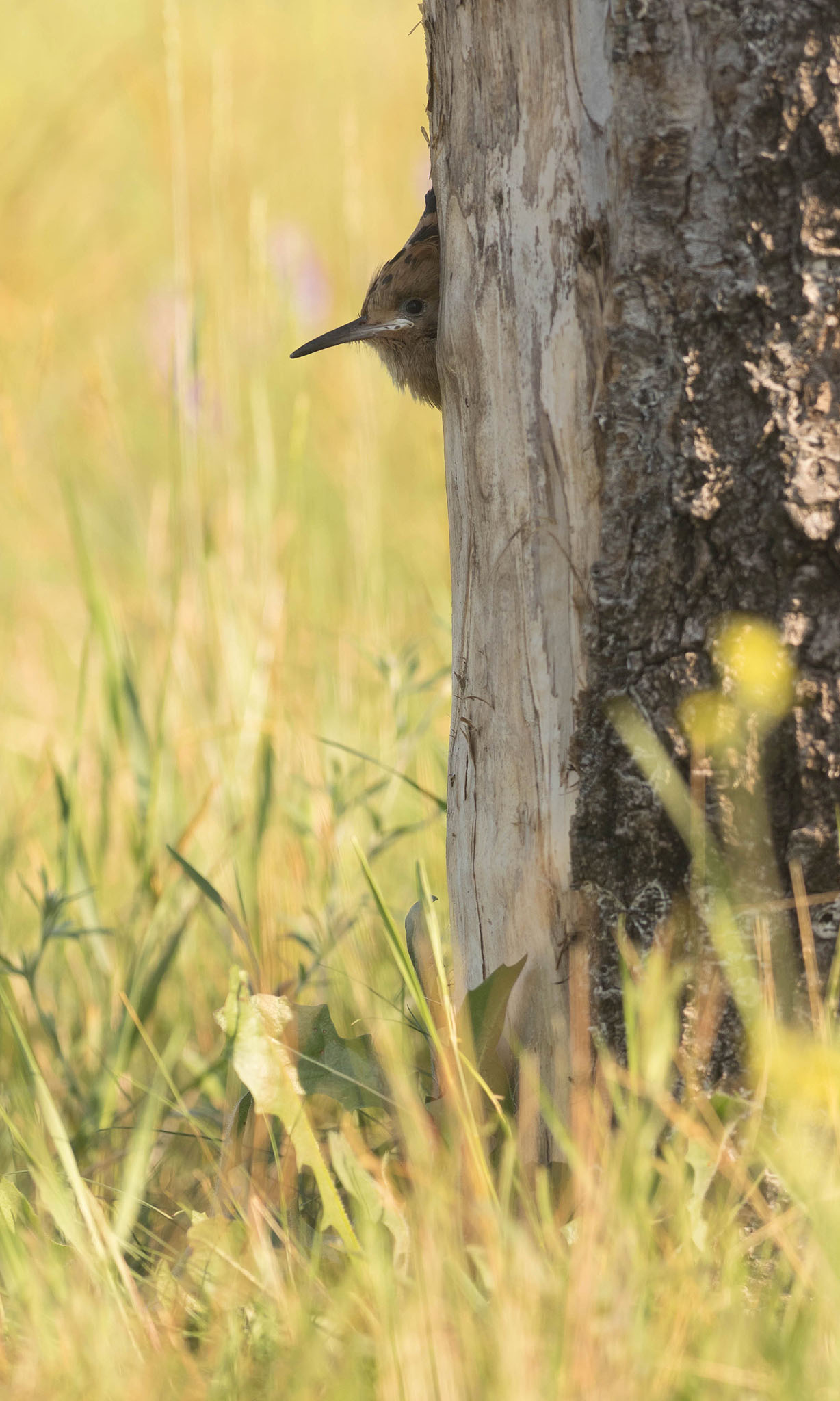
The Tower Hide is always a busy place for photography. Here Red footed Falcon, Common Kestrel and European Roller all nest in close proximity. At times the action can be a little crazy – with so much going on that you don’t know where to point your camera! It often pays to concentrate on a specific species, or focus on a pre-visualised image. I’ve always struggled with flight shots here in the past; this time I managed my best flight shots of both Kestrel and Roller. The Red footed Falcons are always a challenge – their speed can be incredible!
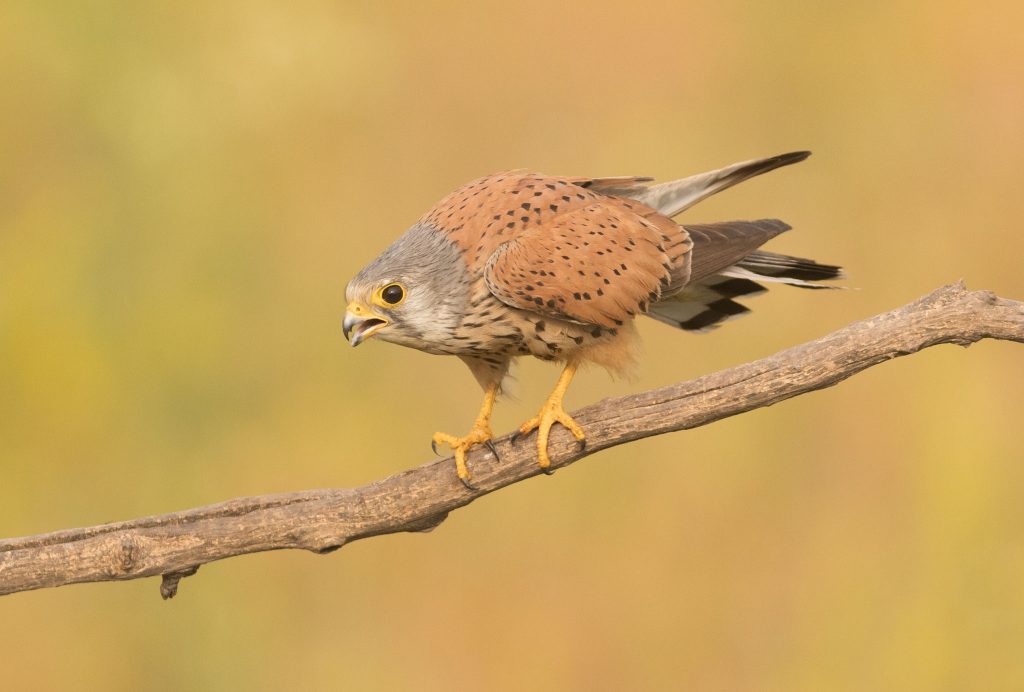
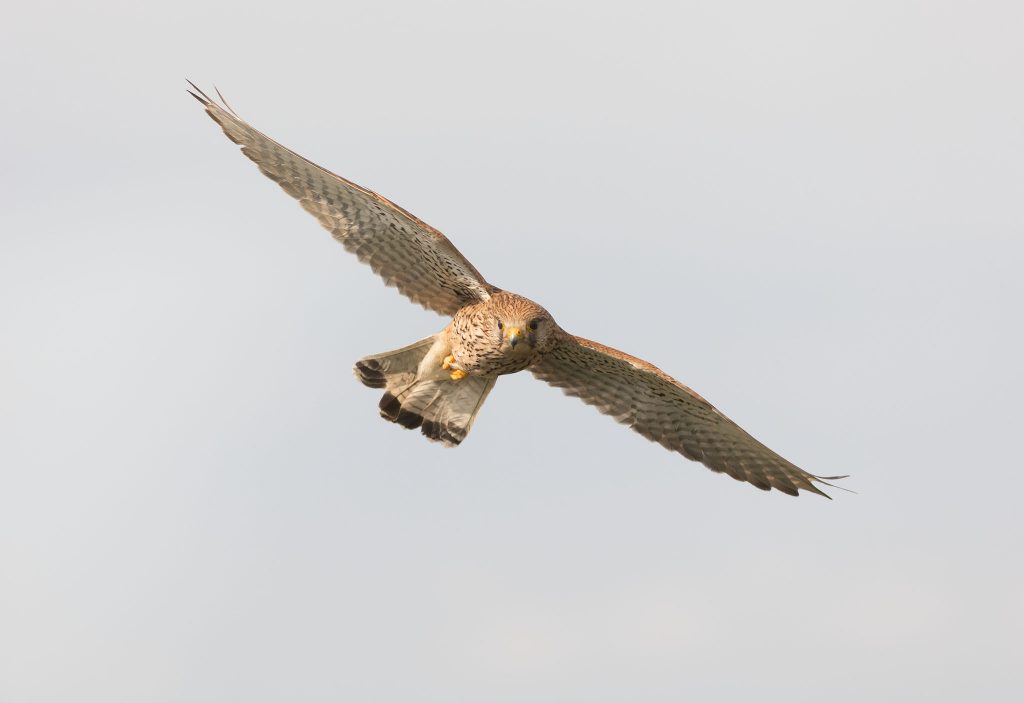
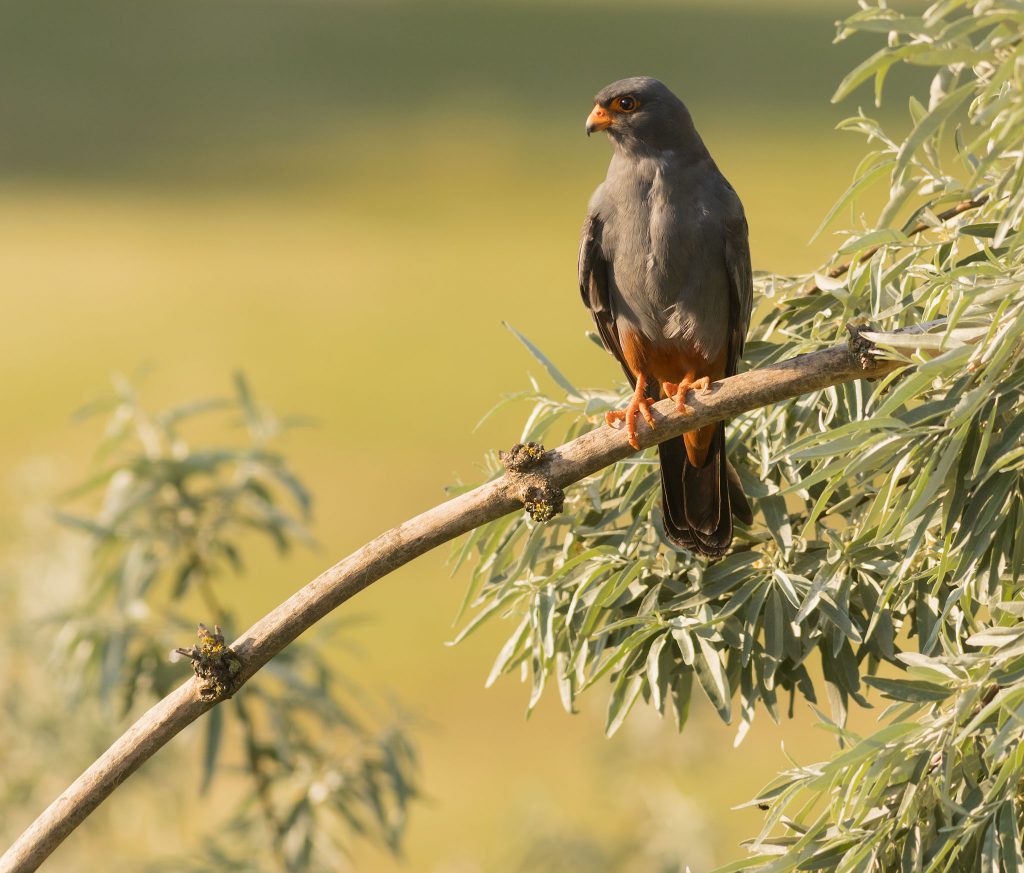
I tried a suggestion from one my clients, Ray, switching to a larger rectangular box for my autofocus. I was amazed how well it worked and I captured one of my best ever flight shots of a Roller as it swooped up to its perch. The Canon R6 auto-focus had locked on incredibly well and from 6 images, 4 were pin sharp on the head. Happy days! Everyone enjoyed the Tower Hide very much and we did another session later in the week.
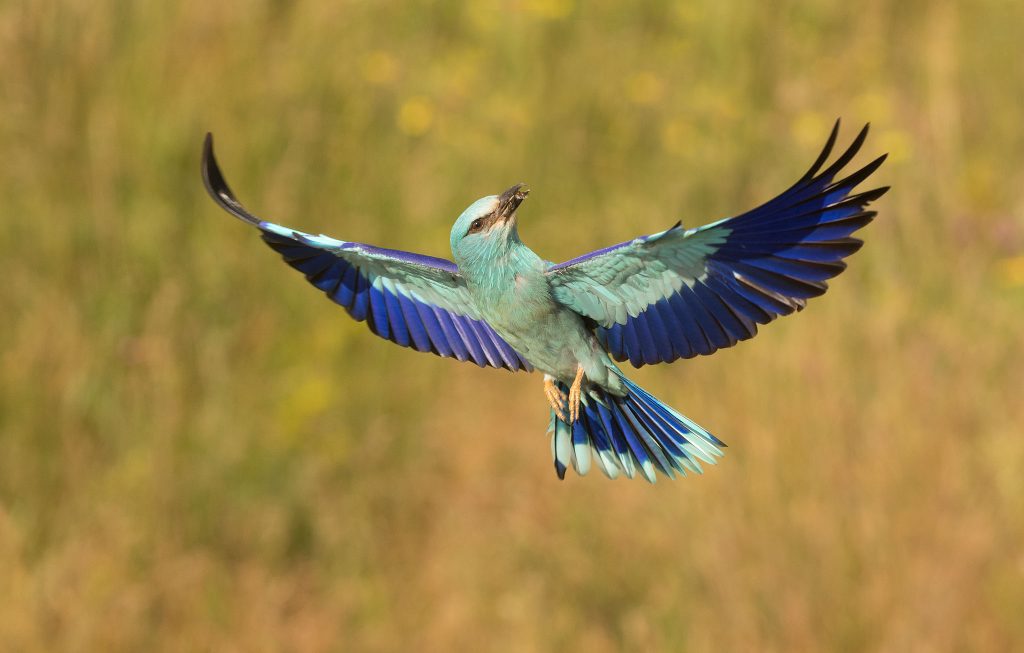
The Water Hides are some of my favourites in Serbia. There are currently 2 in action, whilst a third one is being built for 2024. The main Water Hide is situated amongst the reed-beds with a beautiful view across the water. The background colours are beautiful and with low winds the reflections are very appealing. From our sessions here we photographed Grey Heron, Night Heron, Squacco Heron, Purple Heron, Little and Great Egret. The light here can be stunning – early in the morning the sun starts to break over the reeds and the quality of both sunlight and reflections is spot on.
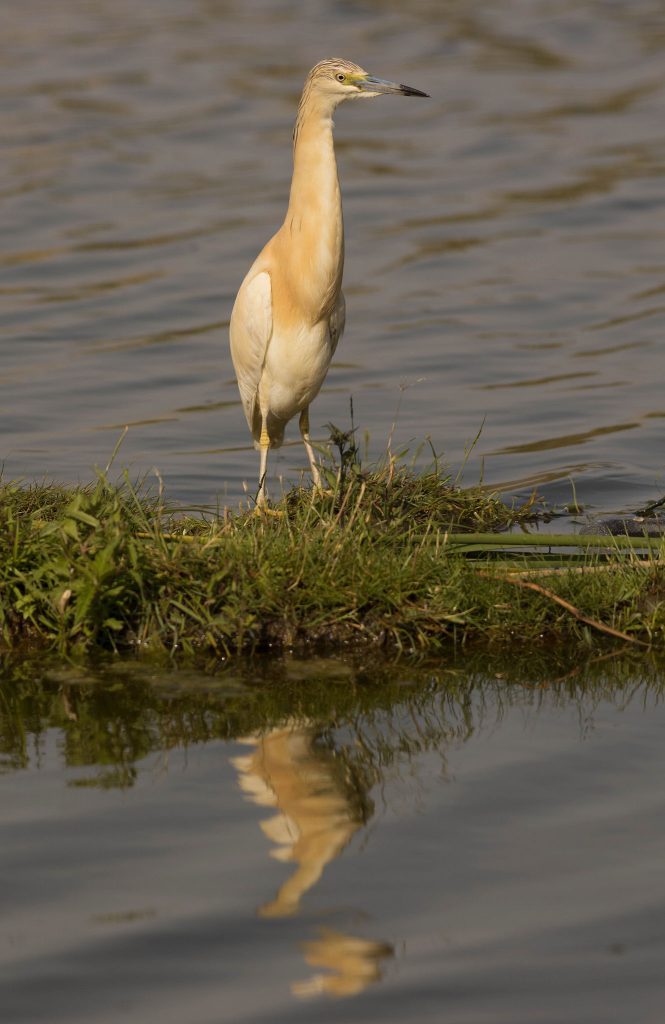
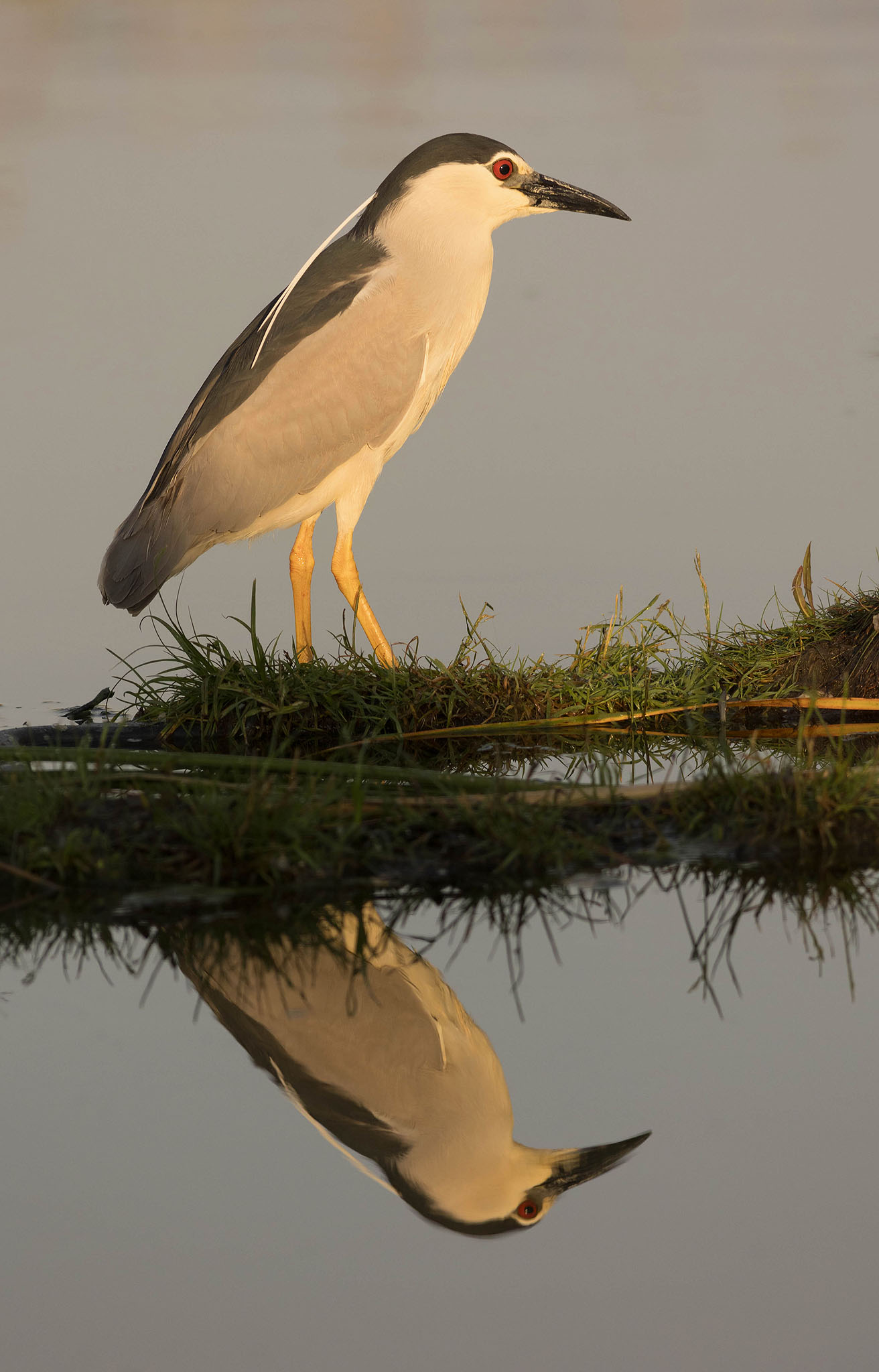
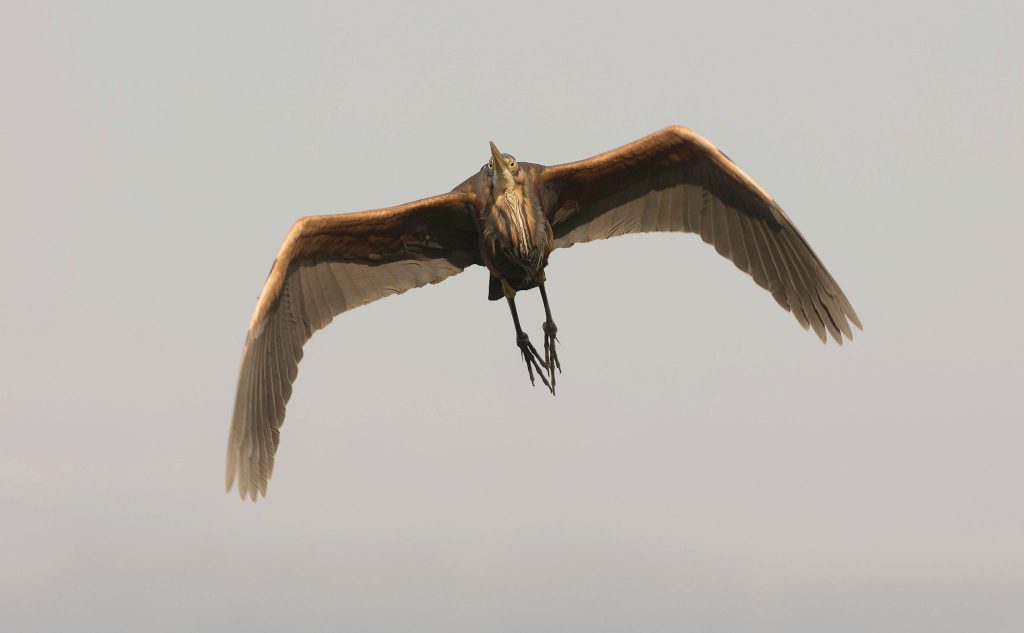
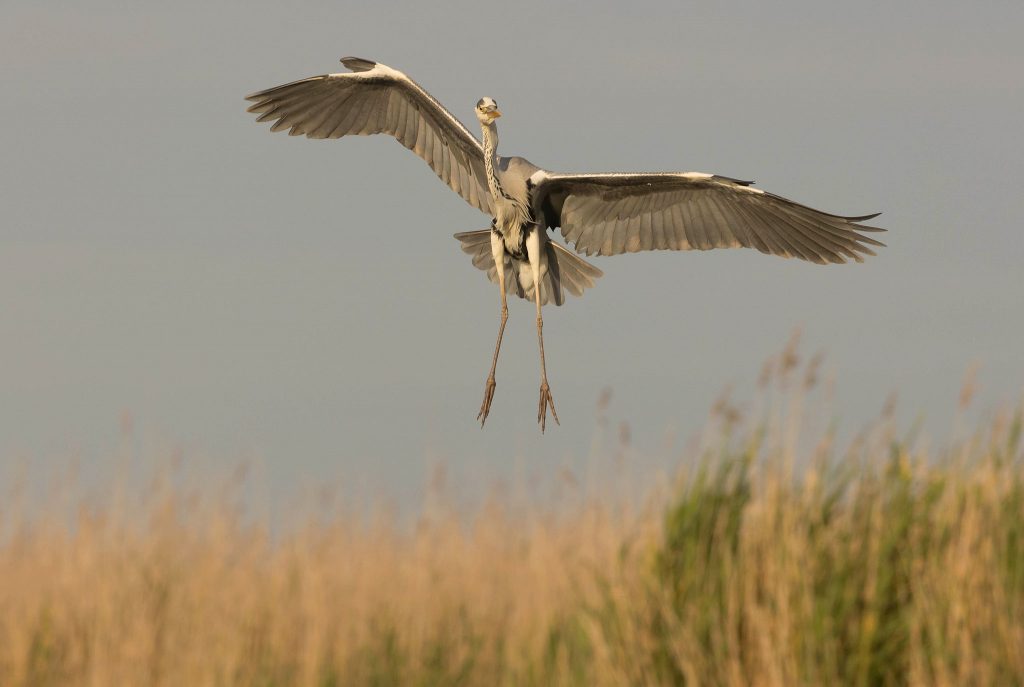
In our last session at the hide we had quite a surprise. Out of nowhere a White Stork landed, right in front of us and began to fish. We all took many, many images as the bird danced around, striking numerous poses and catching its prey. This was an absolute delight and something I had never seen from this hide before!
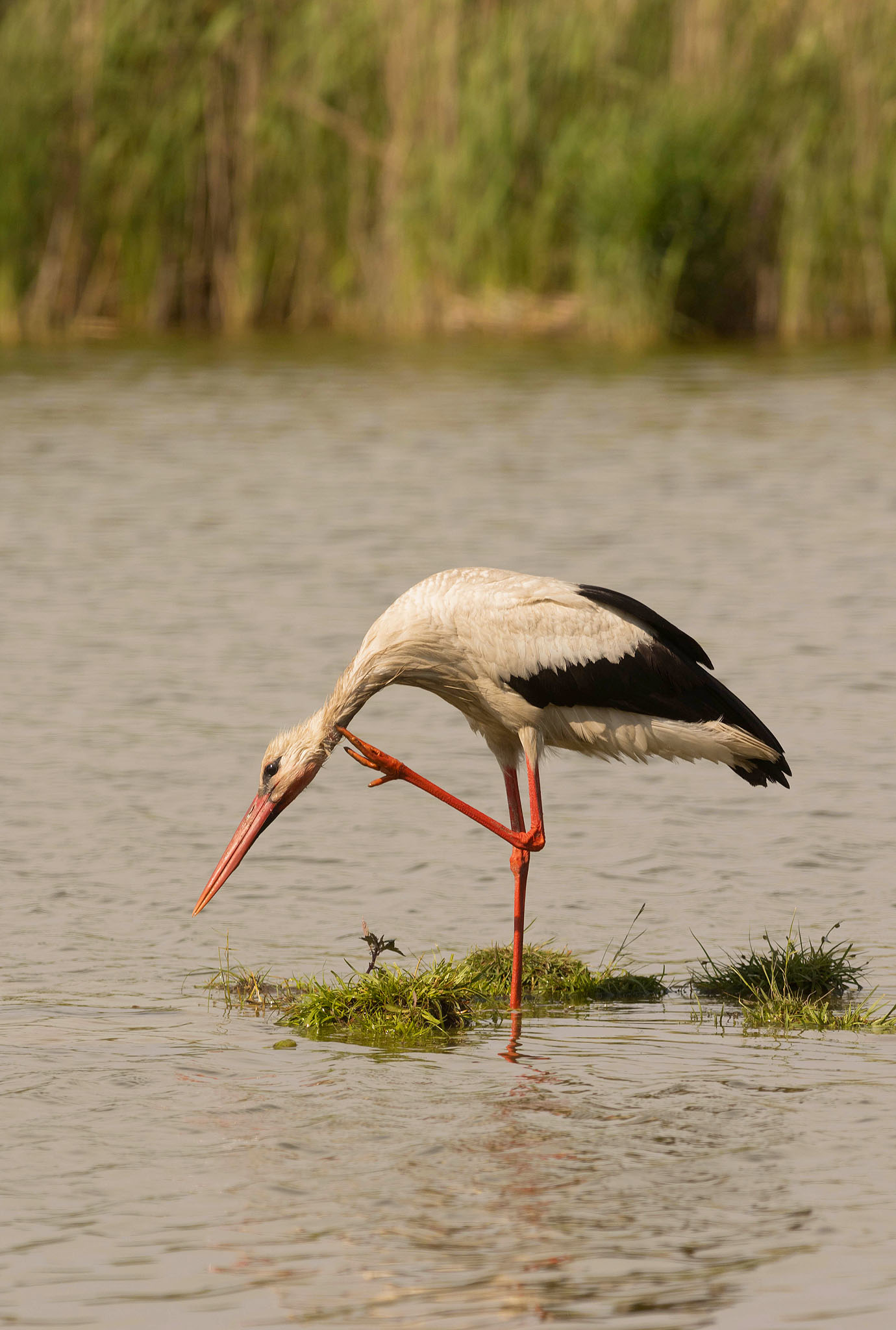
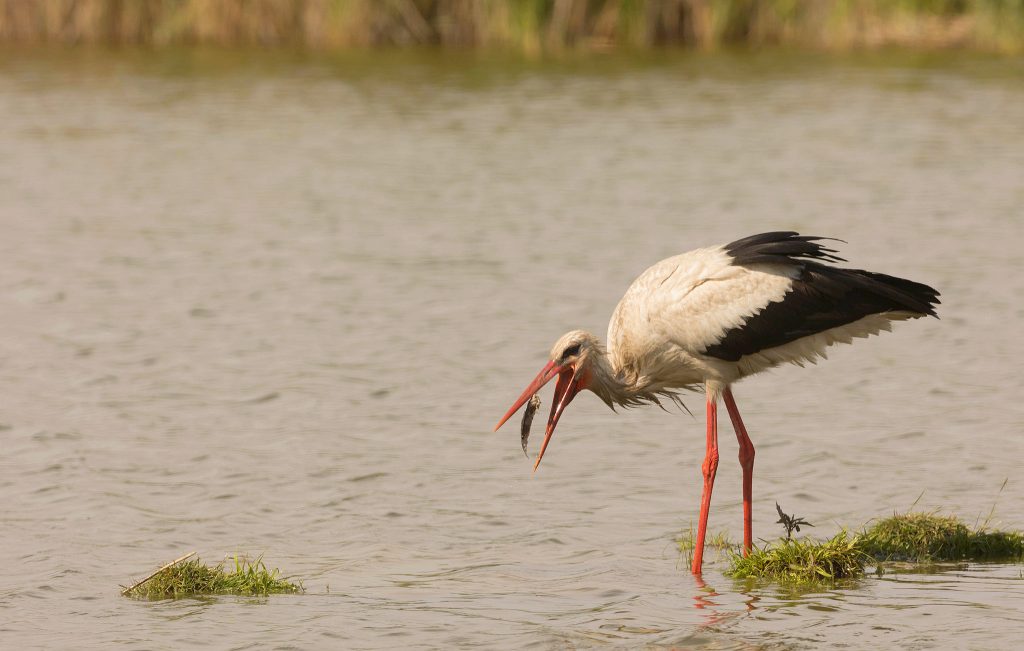
Join the Waiting List for my Serbia Tours
Email: paul@naturephotographycourses.co.uk
The second water hide is a low down affair. Lying in a 4 foot high tube for hours on end is never comfortable… but I really like the aspect of this hide. Completely at ground level we had close up views of a range of birds that were naturally foraging in the shallow waters. Lapwing, Redshank, Great Egret and Purple Heron all came reasonably close for photography. It pays to keep turning over now and again (a bit like a spit-roast) to relieve tension in both your neck and back. Still, it might help to incorporate a little pilates into your life for moments like these…
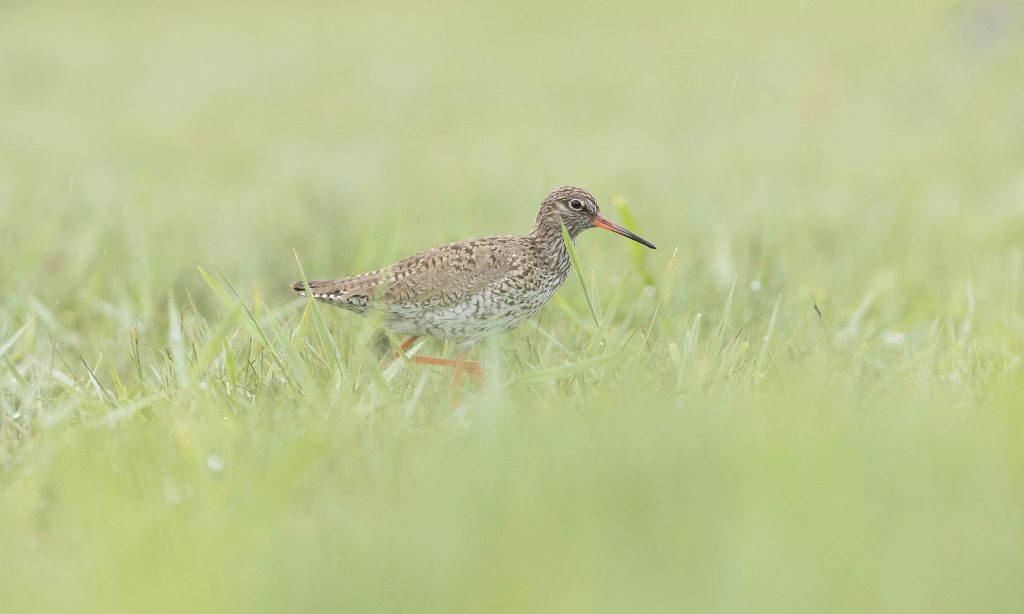
Some of my favourite images from this session were of a Pygmy Cormorant. The light was always flat and at times there was a little rain in the air. It was nice to get something different, a little atmospheric – the bird even did a nice shake for me at one point!
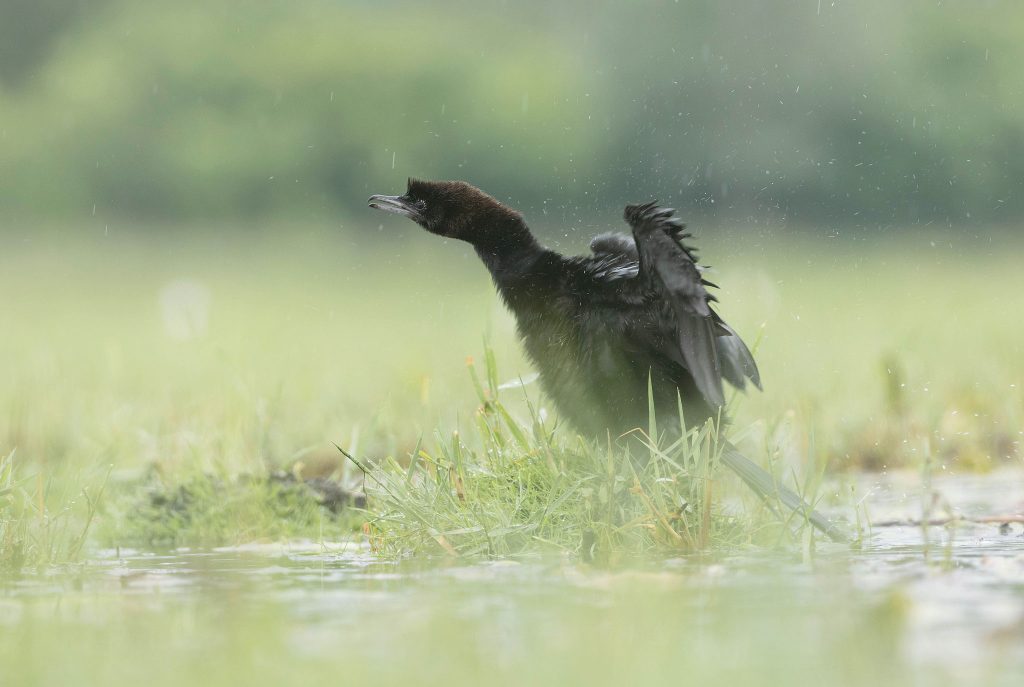
There’s one bird I’d always wanted to capture in the past but never been successful – the Black winged Stilt. I think these birds are beautiful. Dainty and elegant.. although they can look a little too ridiculous at times when you realise just how long their legs are. As I’d hoped, a few of these birds slowly wandered in our direction and we managed some pleasing shots, often with blurred foregrounds.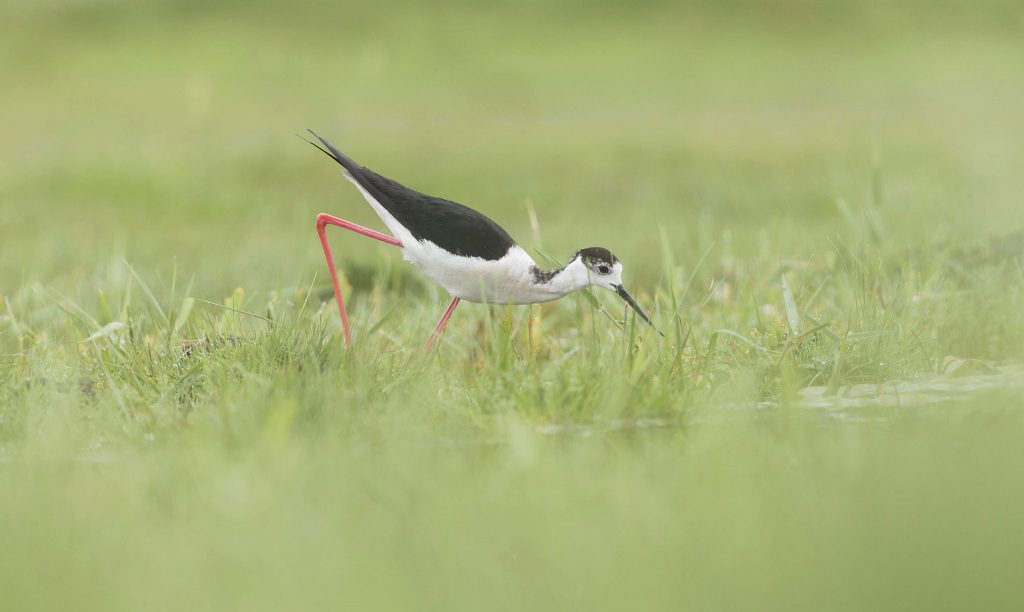
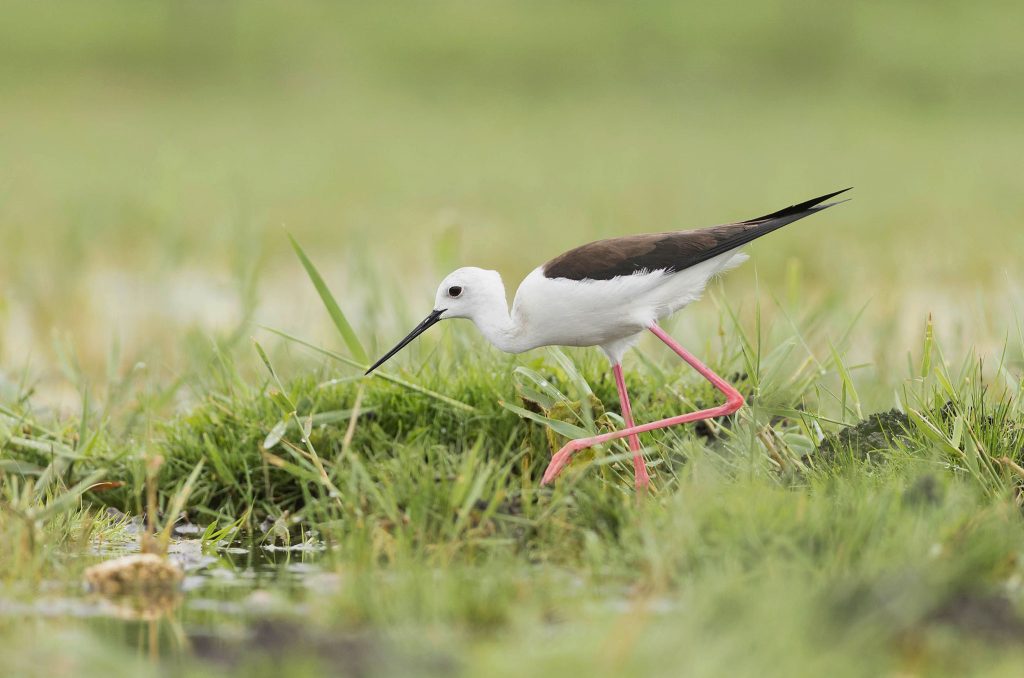
We did a solid 4 hours in that hide and, despite the discomfort, I really enjoyed my time in the there. And there’s always a sense of achievement at the end!
This year conditions for the Bee-eaters were fabulous. Shooting in the afternoon can give incredible light, particularly as the sun begins to set behind us. We shoot from a pop-up hide, which the birds readily accept. The bubbling sound here is just incredible, something that can’t be conveyed in the images – but you can listen to it in my Serbian Photo Tour Video
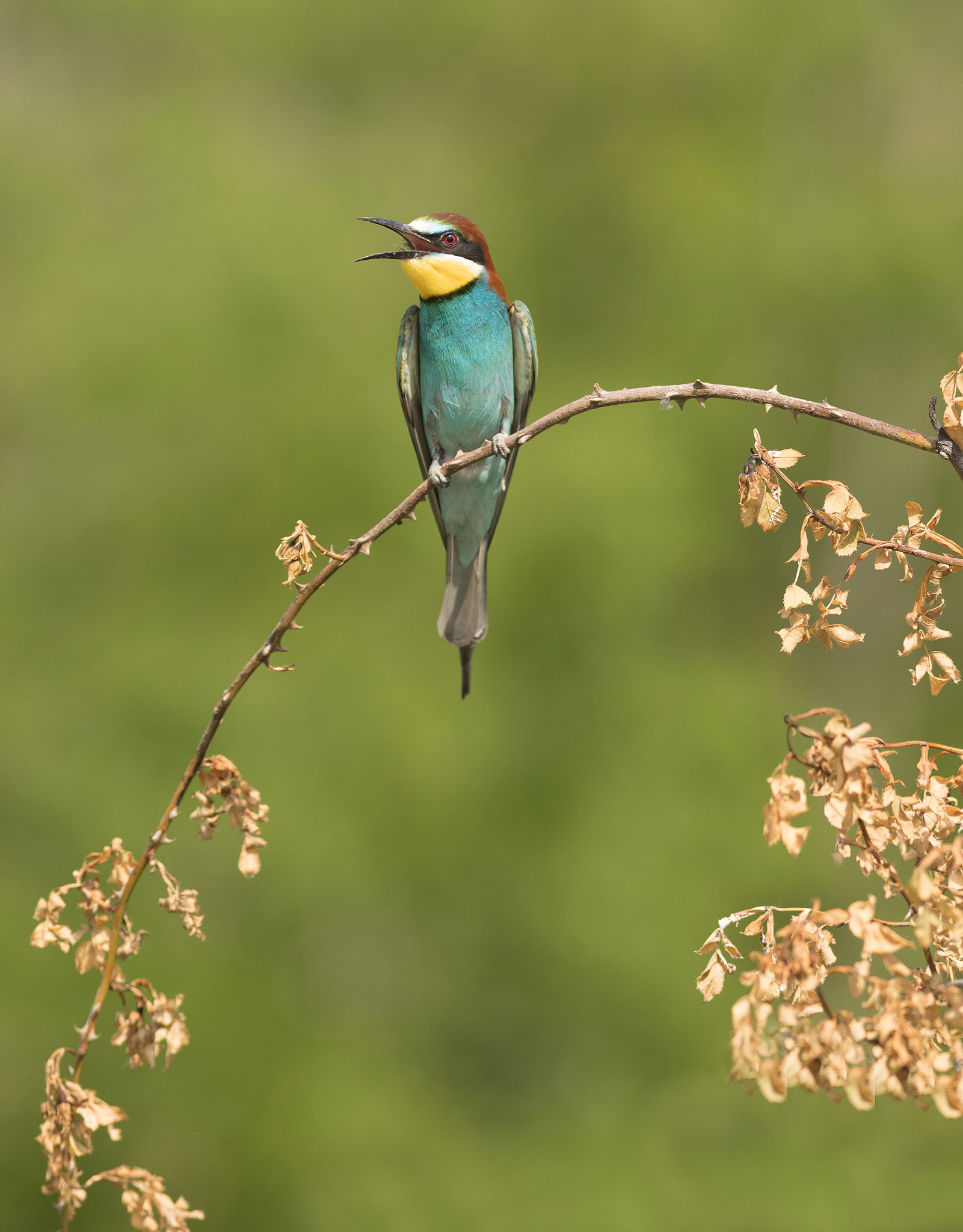
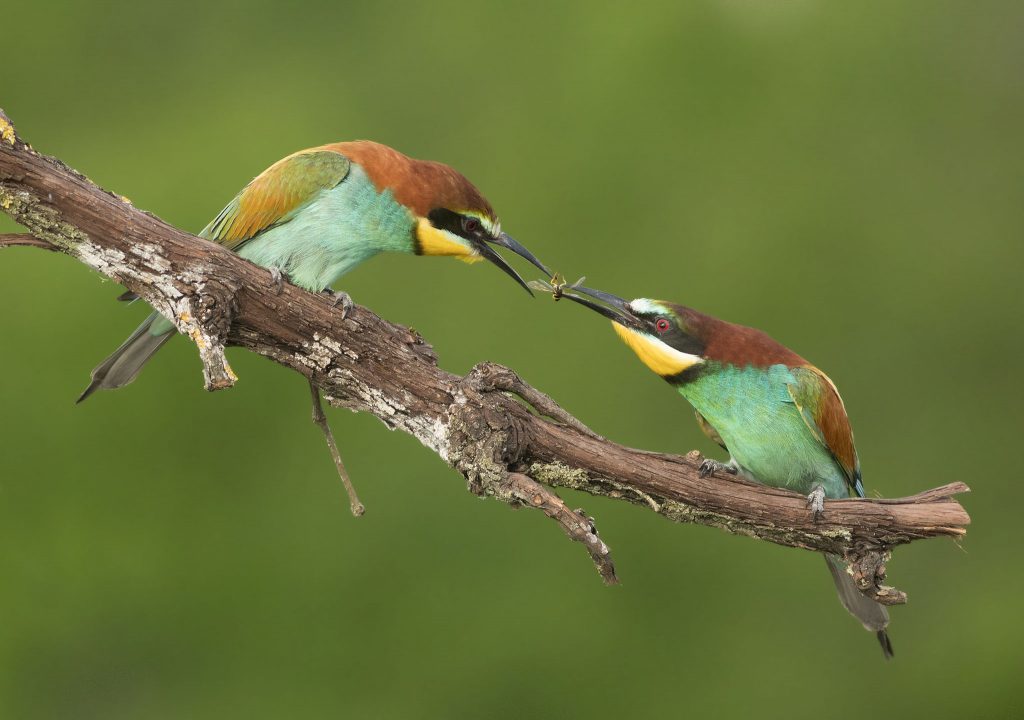
Simple portraits aren’t difficult to capture and even the food pass is relatively easy. So, with such great light, and favourable winds, I set about capturing some decent landing shots as birds came to alight on the perches. It’s often trial and error, but after a few attempts I managed some images I was really happy with.
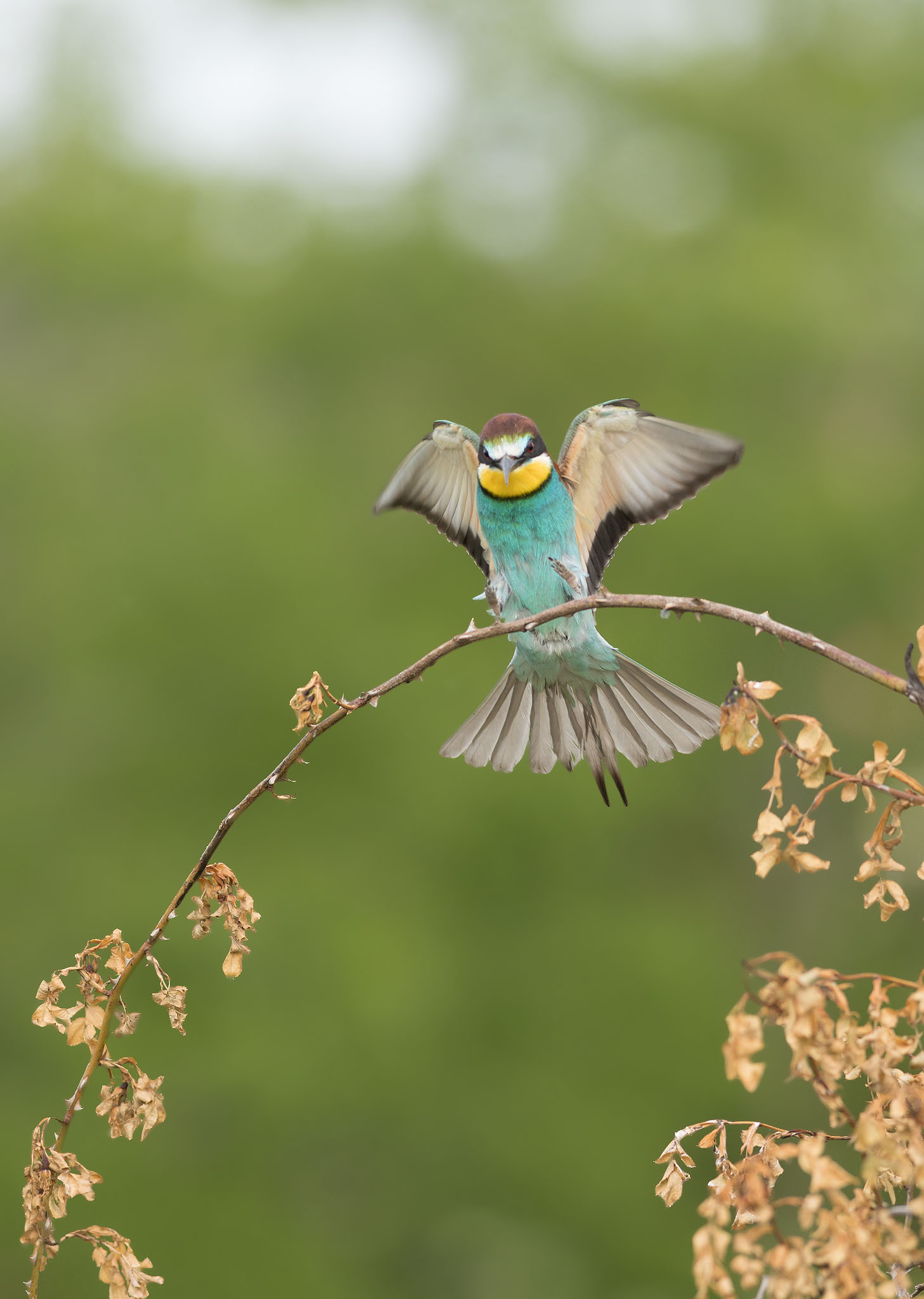
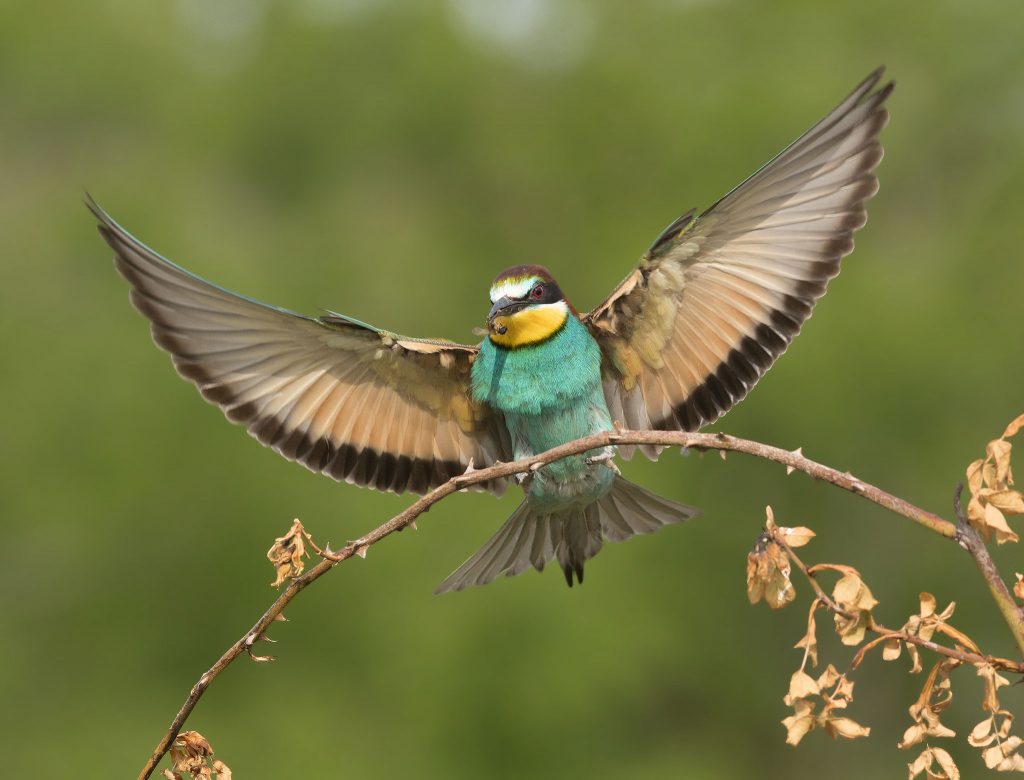
Without doubt, one of the highlights for me was our new location for Birds in Flight Photography. This site allows us to shoot at eye level and with such good activity we had numerous attempts at our flight shots. In just a short space of time we had photographed 4 species of Heron, 2 species of Egret and 2 species of Cormorant, not to mention the many Gulls – all from the same place!
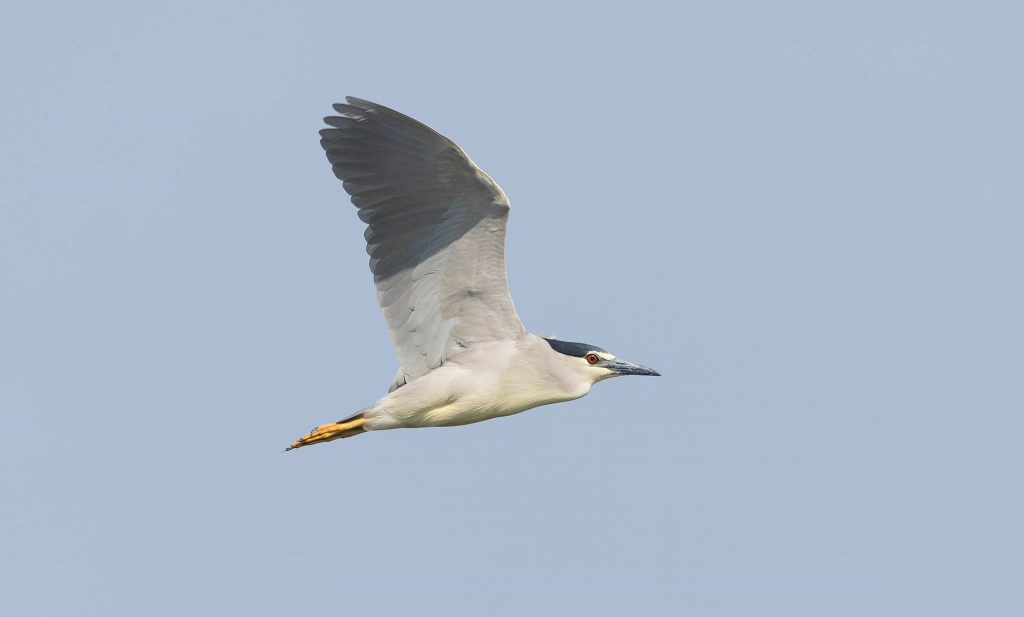
Over the week we photographed at a second Hoopoe Hide, a Penduline Tit nest, and enjoyed ‘in the field’ photography with the help of our knowledgeable Serbian guides. We photographed Spoonbill, Great Reed Warbler, Moustached Warbler, a family of Bearded Tits and numerous Marsh Harriers! We had sightings of Red backed Shrike, Saker Falcon and Little Bittern. The species we saw reached impressive numbers – we counted around 50.. just in one morning! We finished our tour with a morning trip to Subotica, with a local guide, for a little sight-seeing and to learn about the history of the town.
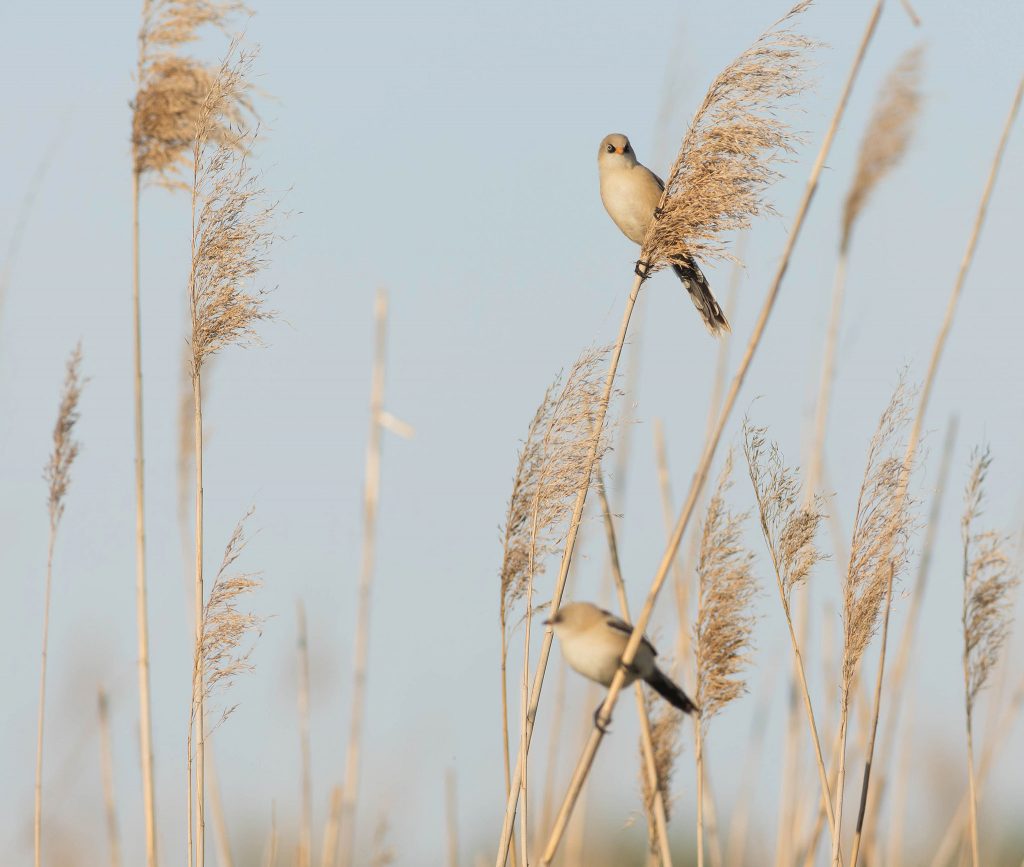
It was a great week with some truly memorable moments. As always a big thank you must go the hide operators who work extremely hard. And a massive thanks to my clients for making it such a fun trip, great company to have!
Watch my video of this years’ Serbian Bird Photography Tour on YouTube
Join me on a Tour in Serbia (Places are limited)
Email me: paul@naturephotographycourses.co.uk
Photograph the Famous Roosting Long Eared Owls of Serbia
For Wildlife Photography Tours in Serbia & Bulgaria make sure to Join My Mailing List
Full Bird List for this Tour
I’ve done my very best to list everything we saw and heard, but there were so many species I may have missed something!
Farmland / grasslands: Red footed Falcon, Common Kestrel, European Roller, Jackdaw, Collared Dove, Common Starling, Magpie, Carrion Crow, Hooded Crow, European Bee-eater, Common Cuckoo, Saker Falcon, Hobby, Stonechat, Turtle Dove, Golden Oriole, Woodpigeon, Corn Bunting
Water Birds: Grey Heron, Black-crowned Night Heron, Squacco Heron, Purple Heron, Great Cormorant, Pygmy Cormorant, Great Egret, Little Egret, Little Bittern, Spoonbill, Black winged Stilt, Mute Swan, Coot, Mallard, Pochard, Red crested Pochard, Ferruginous Duck, Tufted Duck, Greylag Goose, Redshank, Northern Lapwing, Marsh Harrier, Black headed Gull, Mediterranean Gull, Black Tern, Whiskered Tern, Kingfisher
Reed beds / Wetlands: Bearded Tit, Sedge Warbler, Reed Warbler, Great reed Warbler, Moustached Warbler, Penduline Tit, Sand Martin
Woodland and Scrub: Whitethroat, Red backed Shrike, Lesser grey Shrike, Long eared owl, Little Owl, Great spotted Woodpecker, Syrian Woodpecker, Green Woodpecker, Jay, Great Tit, Chaffinch, Blackcap, Whitethroat
Other Wildlife: Otter, Roe Deer, Brown Hare, Water Snake, Frogs, Lizards, Butterflies, Damselflies & Dragonflies
